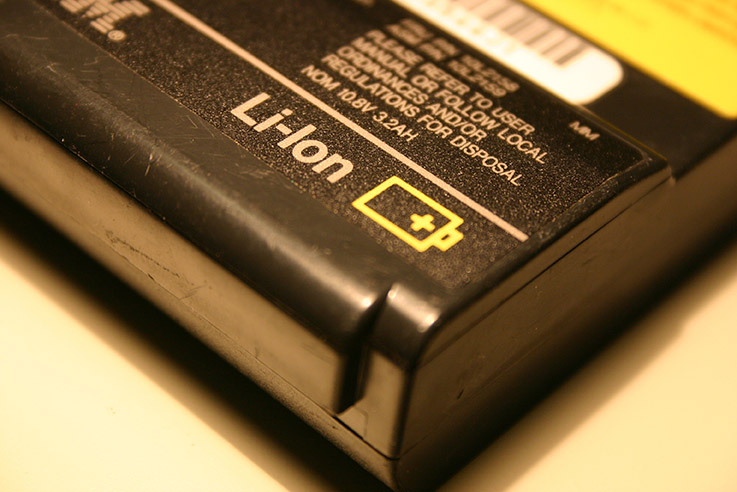
The federal agency is chiefly concerned with the batteries’ propensity for starting fires. | Allyson Kitts/Shutterstock
The U.S. EPA recently clarified that lithium-ion batteries should be treated as hazardous waste, but did not yet change current recycling rules and regulations.
In a memo, the agency said as more pressure is put on recycling batteries, especially electric vehicle batteries, it wanted to examine and lay out how universal waste handling requirements and hazardous waste recycling regulations apply. “EPA encourages the recycling of lithium-ion batteries wherever possible in a manner that protects communities and the environment,” the memo noted, and it hopes to “both remove uncertainties for the states and industry about the regulatory status of these materials and processes and to ensure that this critical step in the circular economy is done safely and compliantly.”
The memo concluded that most lithium-ion batteries are likely hazardous waste at end of life due to their “ignitability and reactivity” and therefore should be managed under the streamlined hazardous waste management standards for universal waste.
Those requirements differ depending on whether the business accumulates more or less than about 5.5 tons of total universal waste on site at one time. Universal waste regulations do not require a hazardous waste manifest to ship, but Department of Transportation regulations for shipping lithium batteries still apply.
“Given the number of fires from lithium batteries, EPA is evaluating the universal waste battery management standards,” the memo added.
More stories about batteries
- LG collection volume increased notably in 2024
- CA starts OEM requirements for battery-containing devices
- Company debuts battery-containing device shredder



